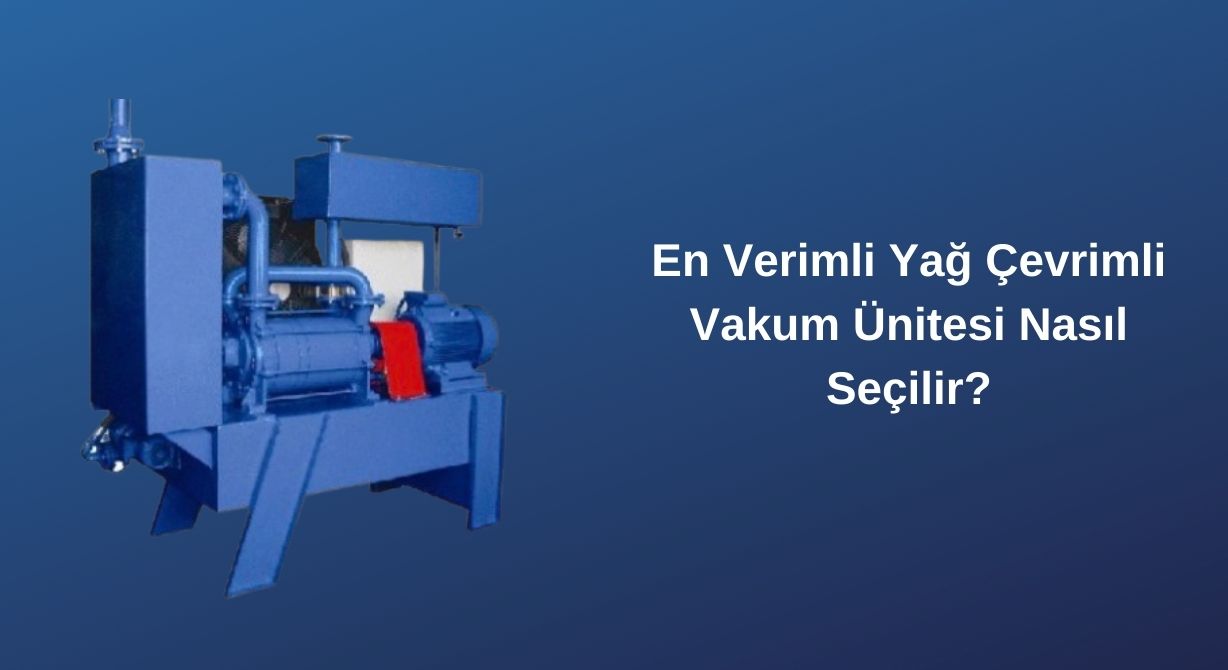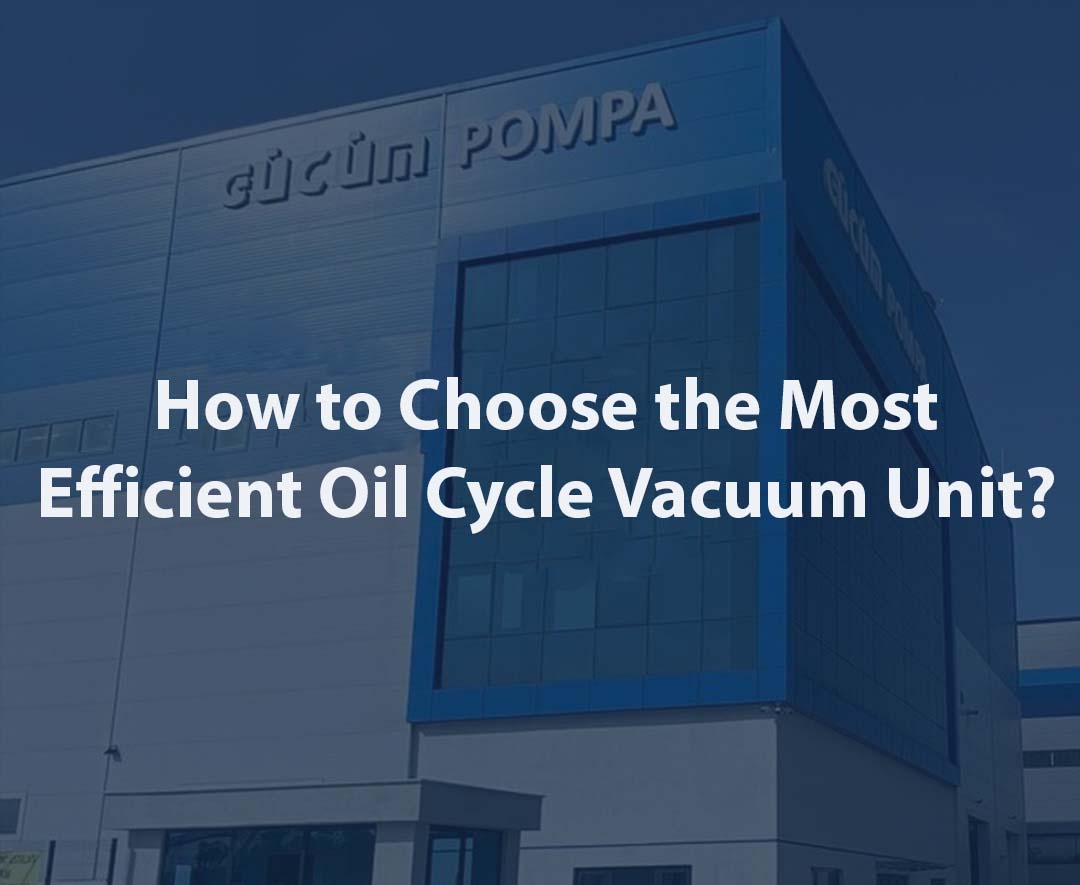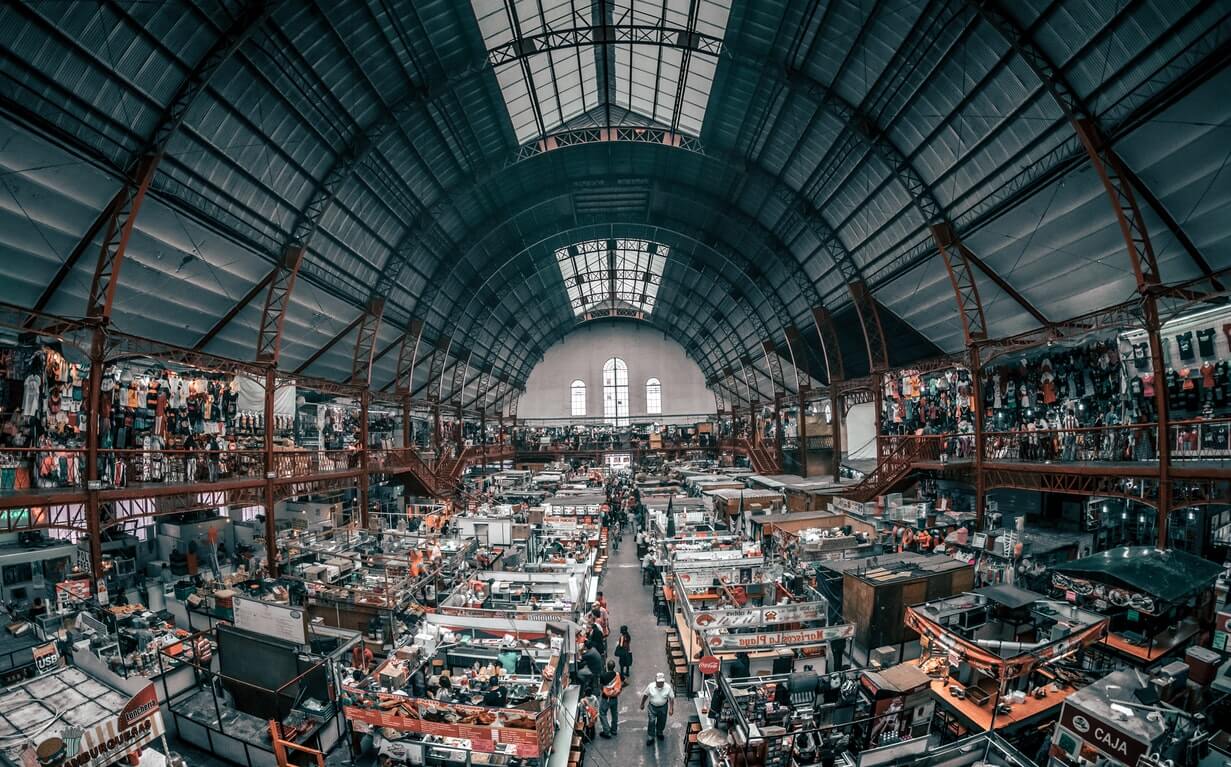How to Choose the Most Efficient Oil Cycle Vacuum Unit?
Table of Contents
- How to Choose the Most Efficient Oil-Sealed Vacuum Unit?
- Operating Principle
- Application Areas
- Advantages
- Maintenance and Durability
- Comparison of Oil-Sealed Vacuum Units and Dry Vacuum Units
- Criteria for Choosing the Right Vacuum Unit
- Energy Efficiency and Environmental Impacts
- Oil Usage and Filtration Processes
- The Future in Industry
How to Choose the Most Efficient Oil-Sealed Vacuum Unit?
Vacuum systems form the foundation of industrial processes. Oil-sealed vacuum units, in particular, are indispensable in applications requiring high vacuum levels and precision. However, selecting the most efficient oil-sealed vacuum unit can be a complex process. There are many factors to consider during the selection. A good choice not only increases your business’s efficiency but also helps reduce costs in the long term.
The first step in choosing the most efficient vacuum unit is to identify your business’s needs. You should consider which vacuum levels you need, the industrial processes in which it will be used, and the long-term maintenance requirements. You also need to evaluate the vacuum unit’s energy efficiency, durability, and environmental impacts. Properly analyzing these factors will help you select the most efficient vacuum system.

Operating Principle
Oil-sealed vacuum units evacuate air and gases from the vacuum chamber through mechanical pumps, thus creating low pressure. In this system, oil is used to reduce friction between the moving parts inside the pump, thereby preventing wear on the pump components. At the same time, the oil enhances the pump’s airtightness, making the vacuum more stable and efficient. Oil-sealed vacuum units operate in a continuous cycle, filtering and cleaning a portion of the oil before returning it to the pump.
Oil-sealed systems are highly efficient in terms of performance because the additional sealing provided by the oil allows for much lower vacuum levels. Oil-based pump systems, with their high temperature resistance, experience no performance loss even during continuous operation. These features ensure high efficiency and safety in industrial systems.
Application Areas
Oil-sealed vacuum units are widely used in many industrial fields. These units are particularly essential in the plastics and rubber industries for vacuum molding processes. In the food sector, they are frequently preferred for packaging and sterilization processes. In medical and laboratory settings, they are used in analytical devices and sterilization equipment. Their importance is also significant in metal processing and electronics manufacturing.
In precision manufacturing processes requiring high vacuum levels, the use of such vacuum units is quite common. The stable vacuum level provided by oil-sealed vacuum systems forms the basis of quality production. Therefore, selecting the right vacuum system is of critical importance for the success of industrial processes.
Advantages
One of the most significant advantages of oil-sealed vacuum units is their ability to achieve high vacuum levels. The oil reduces friction inside the pump, preventing wear and ensuring that components last longer. These systems offer a more stable operating environment compared to dry vacuum pumps and can reach lower vacuum levels. Thanks to continuous lubrication, oil-sealed systems prevent wear and mechanical failures, which reduces maintenance costs.
Oil-sealed vacuum units have high temperature resistance and can operate continuously for extended periods. This feature is one of the reasons why vacuum units capable of withstanding the harsh conditions of industrial environments are preferred. These systems, with their longer lifespan, provide businesses with significant cost advantages in the long term.
Maintenance and Durability
For oil-sealed vacuum units to operate efficiently, regular maintenance is required. Changing the oil at specific intervals, cleaning the filtration systems, and conducting internal pump inspections enhance the system’s performance. These maintenance practices ensure that the vacuum unit operates efficiently for a longer time. Oil-sealed systems, when properly maintained, exhibit high durability and can be reliably used in industrial processes.
The use of high-quality oil increases the durability of these systems. Regular maintenance and quality oil usage extend both the system’s performance and lifespan. The effectiveness of filtration systems ensures that the oil remains clean continuously, enabling long-term use of the system. When these maintenance processes are not neglected, efficient operation is ensured, and failures can be prevented.
Comparison of Oil-Sealed Vacuum Units and Dry Vacuum Units
The primary difference between oil-sealed vacuum units and dry vacuum units lies in the use of oil. Dry vacuum units may have an advantage in terms of being environmentally friendly, but oil-sealed systems allow for lower pressures and more stable operation. Oil-sealed systems yield more efficient results in industrial applications requiring high vacuum levels, while dry vacuum systems are typically used at lower vacuum levels.
Oil-sealed systems are particularly preferred in applications requiring high precision. Dry vacuum pumps may generally have a shorter lifespan and require more frequent maintenance. Oil-sealed vacuum units, by operating efficiently for longer periods, provide reliable solutions with uninterrupted and stable vacuum in industrial processes.
Criteria for Choosing the Right Vacuum Unit
When selecting a vacuum unit, you should consider several key criteria to determine a model suitable for your needs. First, the target vacuum level should be identified, and the system’s suitability for specific industrial processes should be analyzed. Additionally, energy efficiency, maintenance costs, durability, and environmental impacts should be taken into account. The selected vacuum unit must align with your business’s needs and long-term cost objectives.
To choose the most suitable vacuum unit, factors such as energy consumption and efficiency should be considered. Before making a selection, maintenance frequency, oil change intervals, and filtration requirements should also be evaluated. Properly analyzing these elements will ensure that your business has an efficient and sustainable vacuum unit in the long term.
Energy Efficiency and Environmental Impacts
Oil-sealed vacuum units, when used correctly, offer significant advantages in terms of energy efficiency. However, the oil used must be regularly replaced and disposed of in an environmentally friendly manner. Next-generation vacuum systems are being developed with technologies that consume less energy and cause less harm to the environment. These advancements provide both energy savings for businesses and a reduction in environmental impact.
For businesses aiming for sustainable production, the use of environmentally friendly oils and low-energy systems is becoming increasingly important. Therefore, energy efficiency and environmental impacts are critical factors to consider when selecting a vacuum unit. To achieve both economic and environmental benefits, eco-friendly vacuum systems should be preferred.
Oil Usage and Filtration Processes
Oil is a critical component that directly affects the performance of vacuum systems. The use of high-quality oil reduces friction inside the pump, preventing wear and increasing the system’s efficiency. In oil-sealed vacuum units, the oil must be regularly filtered and cleaned. The effectiveness of filtration systems ensures the system’s longevity and keeps the oil consistently clean.
In oil-sealed systems, cleaning the oil is also of great importance in terms of energy efficiency. The accumulation of contaminants in the oil reduces pump efficiency and increases energy consumption. Therefore, the proper functioning of oil filtration systems maintains the vacuum unit’s high performance and provides savings for your business.
The Future in Industry
Oil-sealed vacuum units are rapidly evolving in the industrial sector with the pursuit of more efficient and environmentally friendly solutions. In the future, it is expected that vacuum systems with higher efficiency, lower energy consumption, and less environmental harm will become widespread. These systems will make industrial processes more sustainable, reducing businesses’ long-term environmental impacts. New technologies will offer vacuum units that require less maintenance, have longer lifespans, and increase efficiency in the industry.
Industrial vacuum systems will become smarter and more connected in the future, enabling remote monitoring and maintenance. This will allow businesses to manage maintenance costs more efficiently. As a result, with technological advancements, oil-sealed vacuum units are expected to provide higher efficiency, durability, and environmental benefits.


